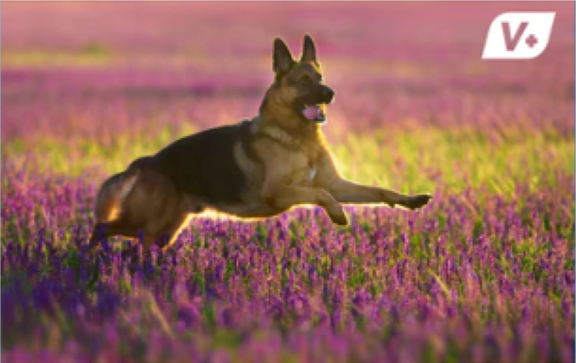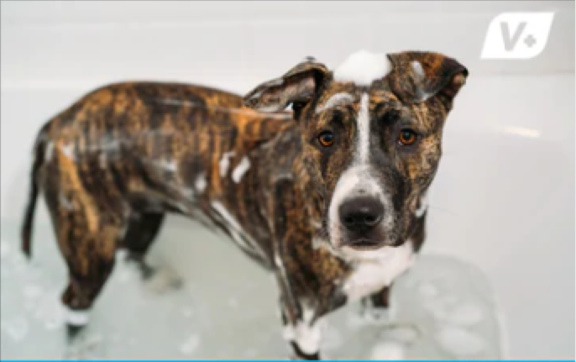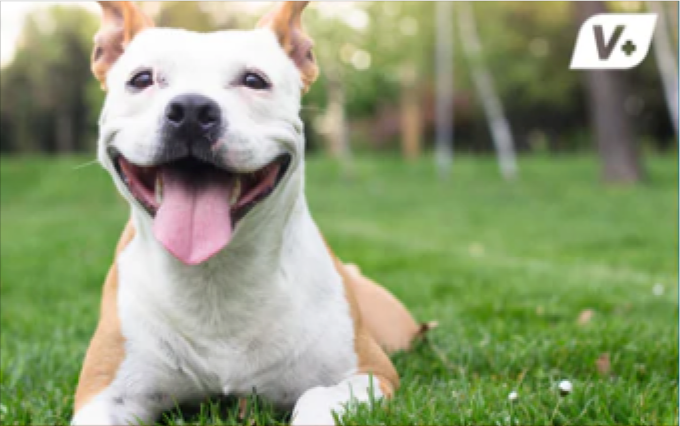Who needs a lawnmower when your dog is eating all the grass? If you’ve ever noticed your dog eating grass, you might be wondering why–especially if they started doing it out of the blue. While it might seem a little bizarre, grass eating might not actually be that bad for your dog–that is, depending on why they’re doing it in the first place.
So why do dogs eat grass? From tummy trouble to nutrition, we’ll cover why your dog might be eating grass, and what you can do about it.
6 REASONS WHY DOGS EAT GRASS
Ask any veterinarian and they’ll tell you that most (if not all) dogs will eat grass at some point in their lifetime. But what could cause your dog to eat grass on a daily basis? There are a few common reasons why your dog could be munching on grass:
When a dog eats unconventional, non-food items (like grass) it’s a condition known as pica. Other examples of pica include eating garbage, fecal matter, plastic, and other items with no nutritional value. When a dog has pica, it can be a sign that they’re experiencing some form of deficiency. One of the following could be lacking in their diet: minerals, nutrients, or vitamins.
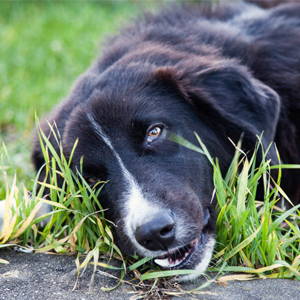
PET TIP
Does your puppy seem to eat everything? It’s normal for adolescent dogs to want to eat shoes, clothes, furniture, and other non-food items. So does that mean your pup has pica? Not likely–just like human babies, puppies use their mouth to experience tactile stimulation and explore the world around them.
Dogs can sometimes eat grass in order to increase their fiber intake, which can be borderline pica behavior. Some dogs know that if they’re constipated, a bit of grass can help. To make their stool softer, bulkier, and easier to pass, they may use grass as an impromptu digestive aid.
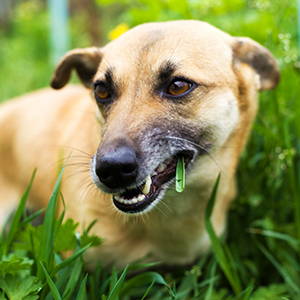
IS EATING GRASS BAD FOR YOUR DOG?
WHAT TO DO IF YOUR DOG WON’T STOP EATING GRASS
- If your senior pet is eating grass and you think it could be due to a dietary deficiency, a daily multivitamin chew might be beneficial to provide vitamins, minerals, and other nutrients that may be missing in the pet’s diet.
- If you suspect digestive tract upset is the culprit, try a probiotic for dogs. Prebiotics (food substances that promote beneficial bacteria), probiotics (beneficial bacteria), and fiber can encourage more balanced gut health, which may reduce your dog’s desire to eat grass.
Putting the Vet in Vetnique
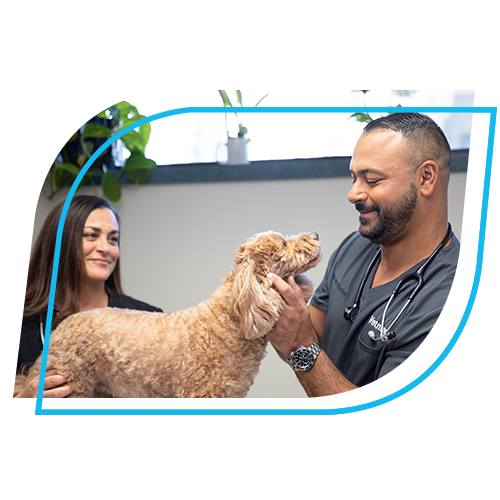
Pet Parents are Also Reading
Join the Pack!
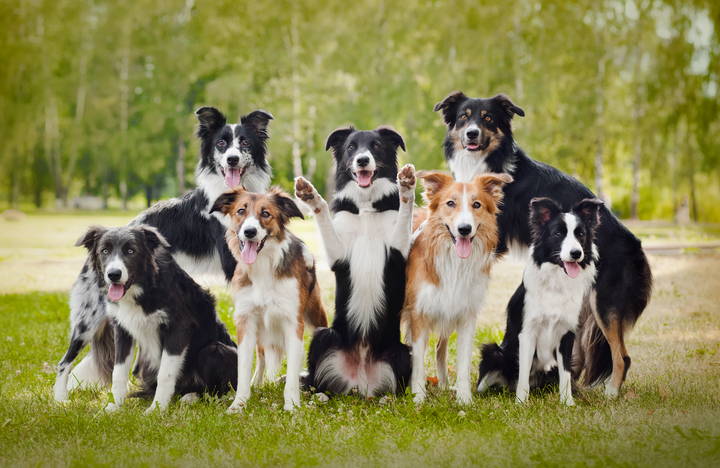
Sign up for exclusive deals, curated pet tips from veterinarians, and product launches!
Pet Parents are Also Reading...
May, 2022
Related Articles

Join The Pack
Sign up for exclusive deals, curated pet tips from veterinarians, and product launches!












